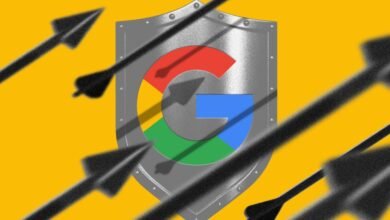Google’s Landmark Ad Tech Monopoly Trial Begins

▼ Summary
– Judge Leonie Brinkema ruled that Google illegally monopolized digital advertising, which will lead to a remedies phase that could force major changes to its ad tech stack.
– The Department of Justice’s proposed remedies include stripping Google’s AdX from DFP, opening its auction logic, and potentially pursuing divestiture if competition does not improve.
– Google has proposed counter-remedies focused on interoperability with rival ad servers and removing certain auction privileges, but without any divestiture of its assets.
– The ruling’s impact may be limited or symbolic, as Google is already losing ground in the ad tech market to walled gardens, retail media networks, and AI-driven platforms.
– Testimony in the case is scheduled for September 22-30, with a final ruling expected in 2026, leaving the industry to anticipate a decision that could either significantly alter or barely affect the future of the open web.
The start of Google’s landmark advertising technology monopoly trial has delivered a dramatic turn, with a federal judge ruling that the tech giant illegally monopolized the digital advertising market. This pivotal decision initiates a remedies phase that could compel significant structural changes to Google’s ad tech stack. However, the digital advertising landscape is already undergoing a profound transformation, with spending rapidly migrating toward retail media networks, walled gardens, and AI-native platforms. This shift raises the possibility that any court-ordered remedies might arrive too late to fundamentally alter a market that is evolving away from Google’s core strengths.
The stakes for the industry are immense. The Department of Justice is pushing for a fundamental restructuring of Google’s operations, aiming to dismantle its dominance. Key proposals include forcing Google to separate its ad exchange, AdX, from its publisher ad server, DFP, and to make its auction logic open-source. For publishers and advertisers, these changes could potentially foster a more competitive environment, leading to better pricing and greater transparency in how ads are bought and sold. The central question is whether these interventions will genuinely level the playing field or if they will be largely symbolic, failing to halt the ongoing migration of advertising dollars to alternative platforms.
A closer look at the legal arguments reveals the competing visions for the industry’s future. The DOJ’s case hinges on several aggressive demands: severing AdX from DFP, open-sourcing the auction mechanics, and keeping the option of a full divestiture on the table if competition does not sufficiently improve. In response, Google has proposed its own set of concessions, focusing on increased interoperability with rival ad servers and the elimination of certain advantages like “first look” and “last look” privileges within its auctions, all while strenuously avoiding any talk of a breakup.
The testimony in the coming days will be critical. Witnesses scheduled to testify against Google include executives from major entities like DailyMail.com, AWS, PubMatic, and Index Exchange. Google’s defense will rely on its own engineers and expert testimony from academics, likely arguing that the market is already highly competitive and dynamic.
An underlying reality tempers the trial’s drama: Google’s influence in the display advertising arena is not what it once was. Advertisers are actively diversifying their budgets, and the web itself is fragmenting. Even a decisive court victory for the DOJ might prove to be more of a symbolic rebuke than a transformative event, as the industry’s center of gravity moves elsewhere. The proceedings are set to continue through late September, with a final ruling not anticipated until 2026. Until then, the entire advertising world is left waiting to see if this legal battle will reshape the open web or merely punctuate its decline.
(Source: Search Engine Land)





